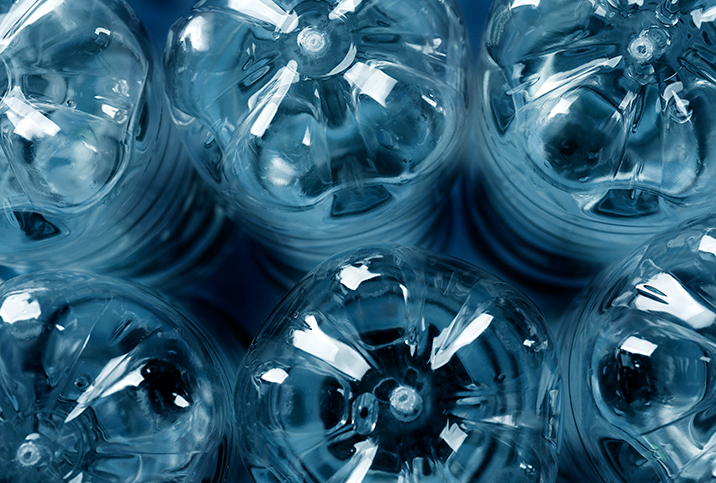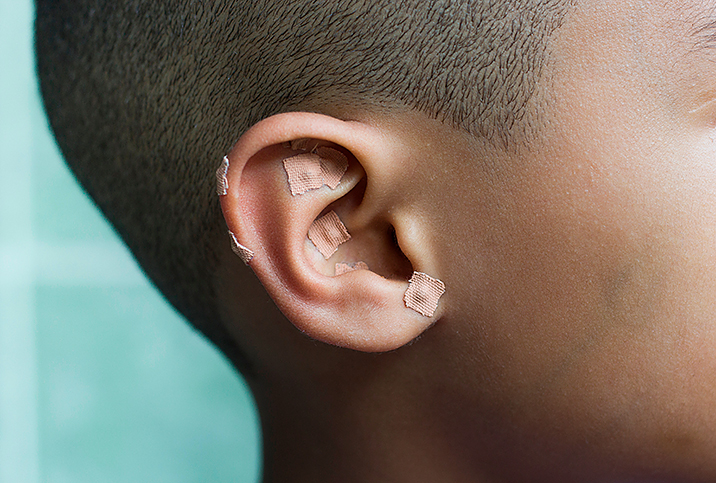Everyday Products May Stimulate Growth of Uterine Fibroids

Phthalates, also known as plasticizers, are a group of chemicals used to make plastic more flexible and harder to break. Invisible, tasteless and odorless, these chemicals are found in hundreds of everyday products, including plastic food and beverage containers, plastic wrap, perfume, nail polish and toys.
Although further research is needed to understand the impact of phthalates on humans, the ubiquitous group of chemicals has been linked to a variety of health risks, including chronic diseases, reproductive and genital defects, and increased risk of miscarriage.
Now, the latest research from Northwestern University has confirmed that phthalates cause the growth of uterine fibroids.
What are uterine fibroids?
Uterine fibroids—also called myomas or leiomyomas—are benign tumors that grow in the uterus. These noncancerous tumors can grow inside the uterus (intramural), outside the uterus (subserosal) or in the uterine wall (submucosal).
Fibroids are the most common gynecological condition, impacting an estimated 20 percent to 25 percent of people with uteruses. Uterine fibroids are most common in people of childbearing age and most frequently develop in Black people. The causes of uterine fibroids are not known, but they have been tied to risk factors such as obesity, red meat consumption and a family history of developing fibroids.
Many people have uterine fibroids without knowing, as they are often asymptomatic. However, around 25 percent to 50 percent of people experience symptoms, including heavy and painful periods, fatigue and fertility problems.
Larger-size fibroids are particularly problematic compared with smaller ones, according to study author Serdar E. Bulun, M.D., chair of the OB-GYN department at Northwestern's Feinberg School of Medicine.
"Larger fibroids are more likely to cause symptoms such as increased menstrual bleeding, anemia, infertility, pregnancy loss and obstruction of labor," he explained.
The impact of phthalates on uterine fibroid growth
Previous research suggests a link between fibroids and exposure to endocrine-disrupting chemicals (EDCs)—chemicals that interfere with the function of the body's hormone system—such as parabens and phthalates. According to prior studies, a higher phthalate concentration in the body translates to a higher risk of uterine fibroids.
The new study, published in November 2022, confirms past research, proving for the first time a causal link between phthalates and increased growth of uterine fibroids.
The study found people with high exposure to phthalates—particularly DEHP, the most widely used phthalate—have a higher risk of developing a larger or symptomatic fibroid.
"We discovered that a specific phthalate, DEHP, and its metabolite MEHHP trigger a molecular pathway in fibroid tumor cells," Bulun said. "This pathway activates an environmental pollutant-sensitive receptor called AHR that makes fibroid tumors grow."
For the study, the research team measured the amount of DEHP in the urine of 712 participants. The researchers detected phthalate DEHP and its breakdown products in much higher quantities in the urine of women with symptomatic uterine fibroid tumors.
Reducing risk
"[Moving forward,] we plan to conduct more focused studies to prove or disprove that phthalate exposure in fact activates pro-growth signaling in uterine fibroid tumors," Bulun said.
He hopes his team's findings contribute to the growing body of research highlighting risks associated with phthalate exposure and, ultimately, lead to new strategies to create safer products and prevent uterine fibroids.
In the meantime, you can reduce your own exposure to phthalates by double-checking your labels on clothing, bottles and food storage containers and wrap.
"Try to get as much information as possible on food and liquid packaging and personal hygiene products [to] avoid phthalate-containing products," Bulun advised. "Work with your legislators for more research and transparency regarding phthalate contamination of these products and the environment in general."
In addition to steering clear of phthalate-containing products, you can minimize your risk of developing fibroids by maintaining a healthy weight and exercising regularly. Research suggests that consuming a nutrition-rich diet high in fruits and vegetables and low in red meat can help. And if you think you might have uterine fibroids, talk to your medical professional for a diagnosis and treatment plan.


















